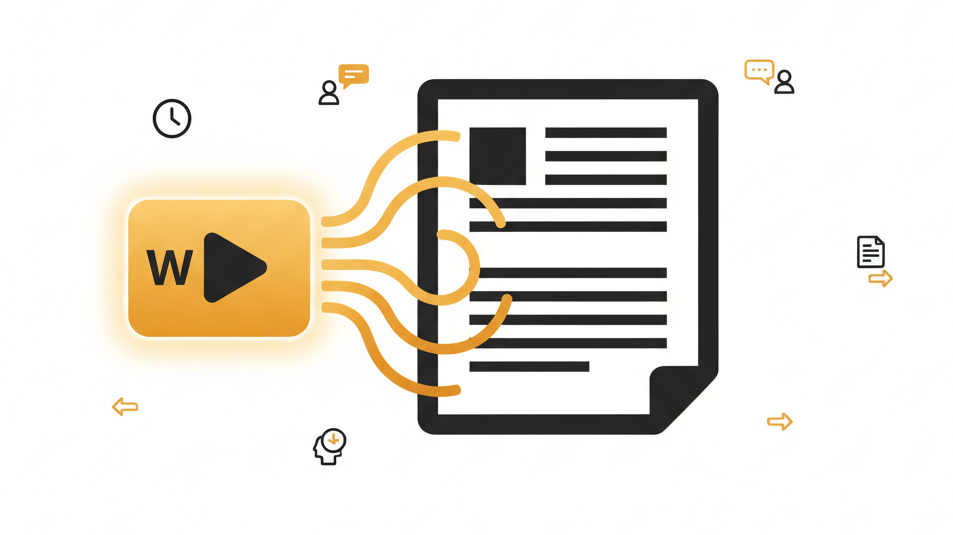
Automated WMV captions, batch processing, and format conversion for large Windows Media libraries

Process WMV screen recordings and training videos created years ago, regardless of codec or bitrate
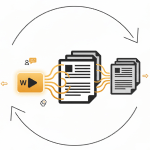
Transcribe multiple WMV files at once to quickly digitize entire folders of archived meetings and presentations

Every sentence receives an exact timestamp, making it simple to jump to specific moments in long recordings
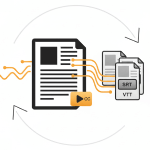
Generate SRT and VTT closed captions from WMV speech-to-text for video players and streaming platforms
Three steps to extract audio from WMV and convert Windows Media transcription to documents

Drag and drop a single .wmv file or select multiple Windows Media files for batch transcription. The platform extracts the audio track automatically and prepares it for speech recognition processing.
Select the spoken language and enable options like speaker identification, punctuation, and domain-specific vocabulary. The AI processes the audio and generates a time-coded WMV transcript within minutes.
Review the final WMV to text output in the browser-based editor, make corrections if needed, then export as TXT, PDF, DOCX for documentation or as SRT/VTT subtitle files for video captioning.
Windows Media Video remains common in corporate and educational archives, storing years of training content, webinars, and recorded desktop sessions
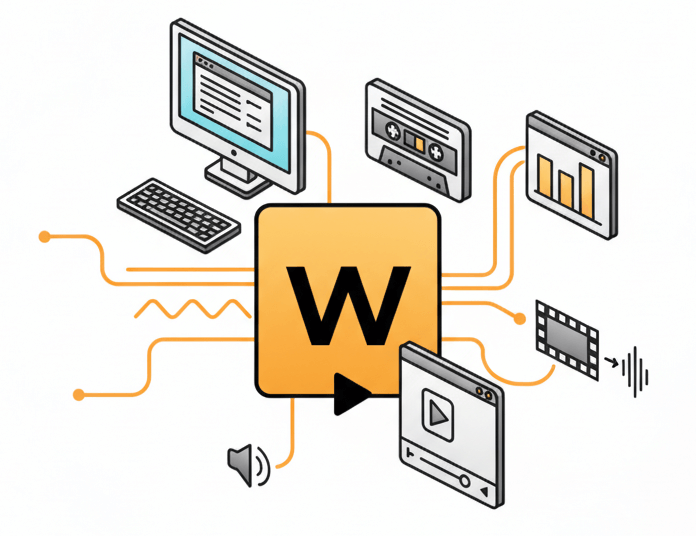
Windows Media Video (WMV) is a video container developed by Microsoft, widely used throughout the 2000s and 2010s for desktop recording, training videos, and corporate communications. Files typically carry a .wmv extension and contain video compressed with Windows Media codecs alongside an audio track.
Organizations often discover large WMV libraries on shared drives: recorded Skype meetings, screen-captured product demos, archived webinars, and internal training sessions. While modern platforms favor MP4, these legacy files hold valuable institutional knowledge that remains difficult to search or reference without transcription.
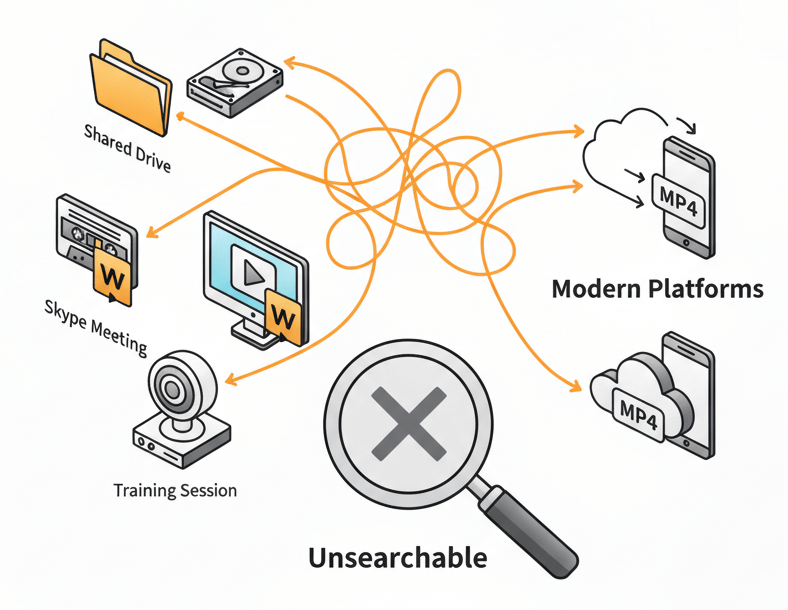
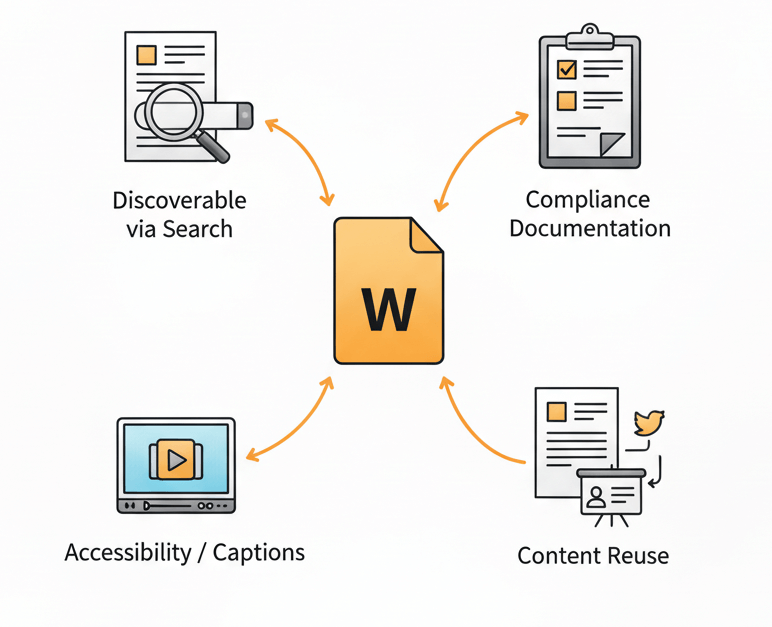
Converting WMV to text unlocks archived knowledge for modern knowledge management systems. Transcripts make old training material discoverable via full-text search, support compliance documentation, enable accessibility through captions, and allow reuse of content in new formats without manual note-taking or repeated viewing.
Teams across industries use WMV to TXT conversion to modernize archives, improve compliance, and extract insight from legacy recordings
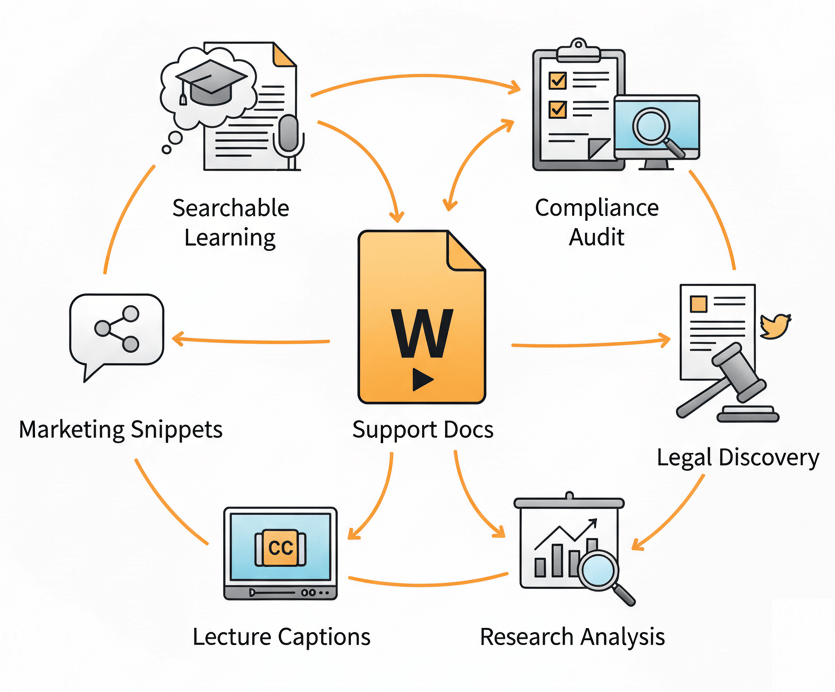
Upload the .wmv file to the platform, select the language spoken in the recording, then start the automated transcription. The service extracts the audio, applies speech-to-text models, and delivers an editable transcript with timestamps.
A free trial allows testing the full WMV transcriber online without installation. The browser-based tool works on Windows, Mac, and Linux, eliminating the need for desktop software while providing professional-grade speech recognition.
Yes. After transcription completes, export options include PDF (formatted document), DOCX (editable in Word), TXT (plain text), and subtitle formats like SRT or VTT for video captioning. Each export preserves timestamps and speaker labels when enabled.
Select all WMV files at once during upload, apply language and model settings to the entire batch, then process them simultaneously. This approach is efficient for digitizing large archives of meetings, training videos, or recorded sessions stored in folders.
The engine includes noise-reduction preprocessing and models trained on diverse audio conditions. For challenging recordings, enabling domain-specific vocabulary and manual review in the editor ensures accuracy even when the original WMV audio quality is compromised.